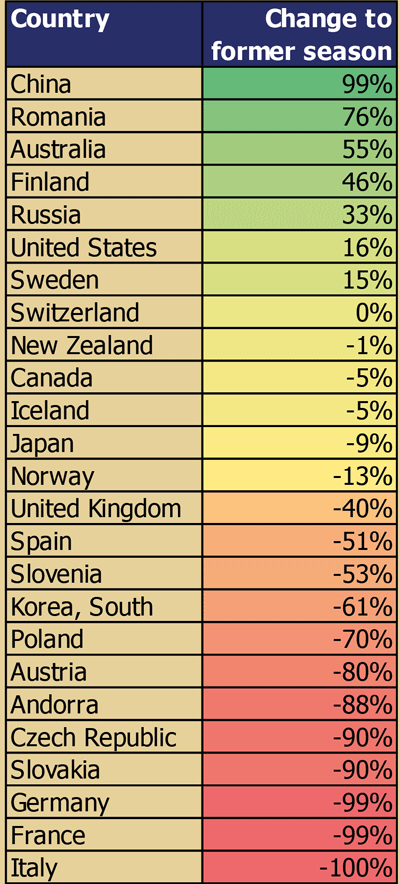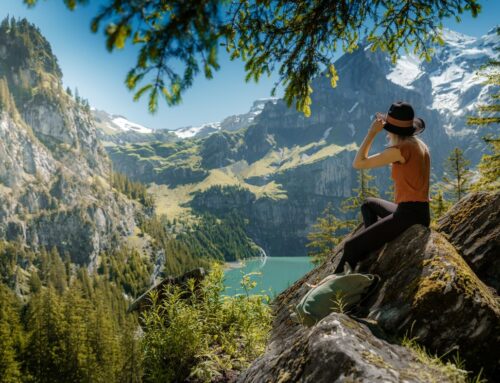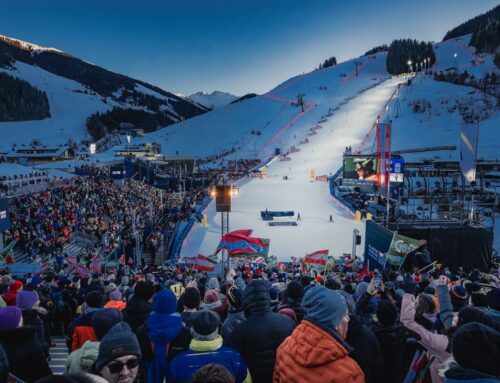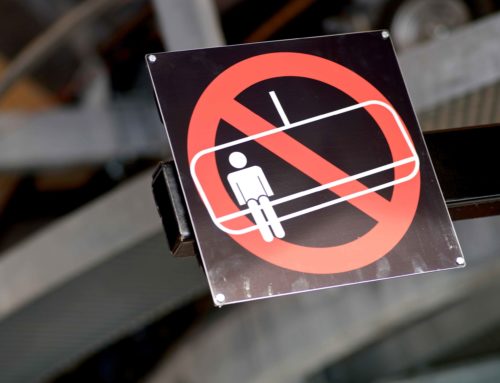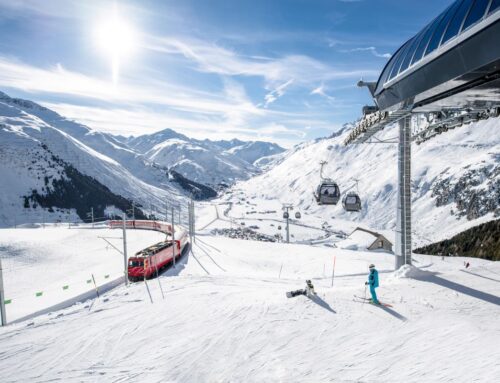
Management & Tourism
Corona: Latest study to global ski market
“Today I present a season, the like of which the industry has never experienced before” – this is how Laurent Vanat announced his 2022 International Report on Snow & Mountain Tourism.
The author presented the report on the pandemic winter of 2020/2021 at Mountain Planet in Grenoble. The Agora in the exhibition hall was unable to hold the many listeners, so great was the interest in the unusual figures and the alteration of the rankings in comparison with the 13 previous seasonal reports.
Between ups and (lock)downs
This time, the contrasts between the countries were especially stark. Because of the Covid-19 pandemic, some states kept their ski resorts closed for the entire winter, whereas other nations experienced a very positive season.
Unlike most European countries, the politics of the other continents avoided panic reactions as far as their ski resorts were concerned. Preventive measures were organised often proactively by the industry itself.
This generally resulted in a good ski season and the visitor numbers in some places reached high levels despite the restrictions. Nowhere did operation of the ski resorts lead to the formation of “Covid clusters” that spread across an entire country.
Alpine region pulls the figures down
In only six of the 68 countries surveyed were the ski resorts closed in winter 2020/2021. Yet the operating ban on cable cars in the Alps had a massive impact on global skier numbers.
The ranking of ski markets was temporarily completely changed, such that China was in second place for initial admissions in 2020/21, behind the United States but just ahead of Japan and Switzerland.
By contrast, Austria, France and Italy, which normally occupy the top spots, were – at least partially – out of the game.
Globally, initial admissions at ski resorts
collapsed by 37 percent in 2020/21. Illustration: Vanat
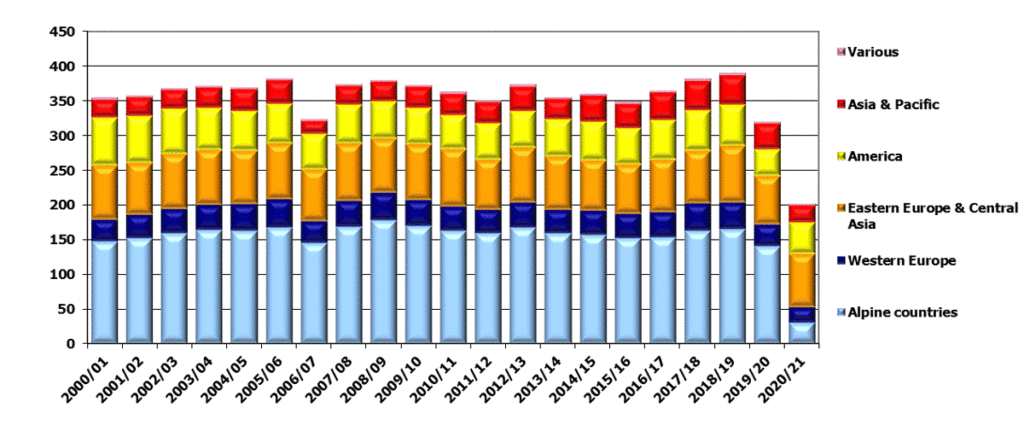
“After the 2019/2020 ski season had been labelled the worst season of the current millennium, with 319.5 million skiers worldwide, closure of the Alpine ski resorts resulted in the even worse figure of 201.2 million skiers for 2020/21,” Vanat reports.
That represents a 37-percent reduction in initial admissions worldwide. The shortened 2019/20 season was already 18 percent down.
Growth in Asia and America
Logically, the places most severely affected were the Alpine countries, where the drop reached 78 percent. By contrast, in other European destinations and in Central Asia, the fall was limited to 32 percent.
Thanks to the recovery in China, the Asia-Pacific region actually recorded growth of 17 percent. The very good season in the United States also brought growth of eleven percent for America.
Longer season than usual in some places
Alongside this highly contrasting picture, the winter of 2020/21 was also characterised by a number of other highlights.
As such, the season was longer than usual in many places; several ski resorts in countries such as Switzerland and Slovenia were still open in June, even though the cable cars are normally closed at this time.
Although the lockdown in France lasted until the end of May, a number of ski resorts there were able to offer special weekend opening for a limited number of guests at the end of May and in early June.
Put simply, they still had unusually high volumes of snow lying on their pistes.
Investments in new tracks
were scaled back significantly all over the world in 2020. Illustration: Vanat
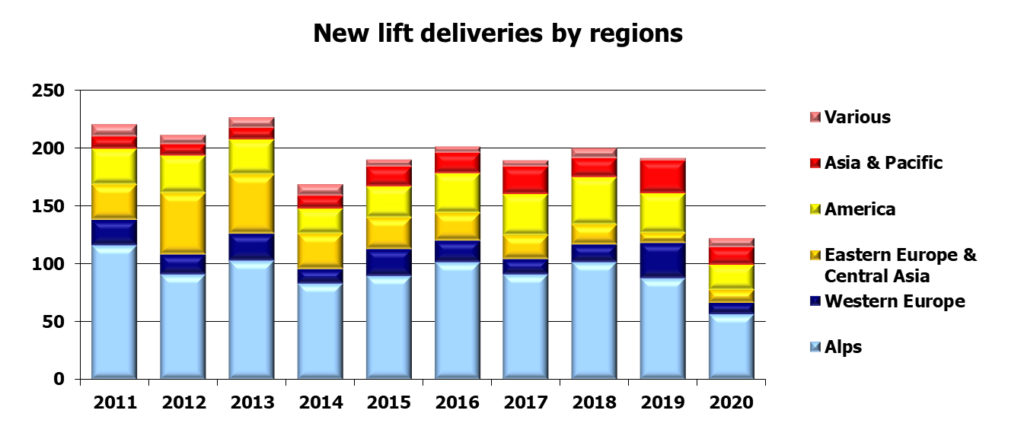
Target group: domestic
The travel restrictions abroad contributed to the fact that domestic visitor numbers in several eastern countries reached an unprecedented level. Russia and Romania experienced their best ever season in 2020/21.
The United States also recorded fresh enthusiasm in the population for skiing. There, the industry recorded over a million new or returning guests and so once again achieved the level that was normal in the first decade of the century.
Trends in ticketing
The model of advance booking in conjunction with season passes for multiple ski resorts has further altered the traditional business model for ticket sales.
“Together with the widespread introduction of dynamic prices, operators have therefore increased the reliability of their income base, facilitated by the pandemic restrictions,” Vanat emphasises.
The industry is furthermore committed to the aim of offering an exceptional experience for skiers and will strive to ensure this even more in the coming years, Vanat is convinced:
“We also hope that the Winter Olympics, which took place this year, will yield further fruit for the Chinese ski business.”
About the report
Free access to the complete report is currently limited to the contributors and the supporters of the crowdfunding campaign. Printed copies of the report are available to buy online on the website of the author, www.vanat.ch.
The pandemic had very different effects
on the cable car industry in the respective countries. Illustration: Vanat
